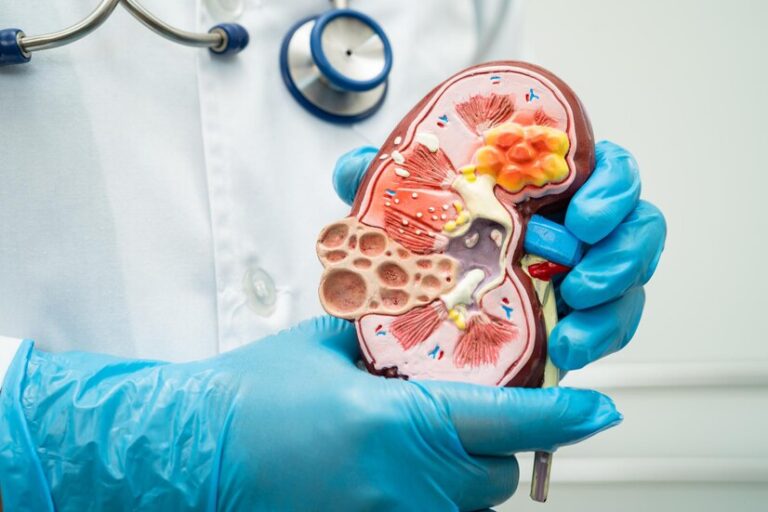Improving Male Fertility Naturally: Tips and Strategies
Introduction
Male fertility is essential when it comes to beginning a family. While much of the focus is often on women’s reproductive health, understanding and enhancing male fertility is equally important. This article will delve into various natural approaches to improving male fertility, providing practical tips and strategies that can make a significant difference. By incorporating these evidence-based strategies and addressing both lifestyle and environmental factors, men can significantly improve their reproductive health. Whether you’re just beginning your journey to parenthood or seeking ways to enhance fertility, these tips can offer valuable support and guidance along the way.
Why Male Fertility is Important
Male fertility is vital for conception, as it involves the production of healthy sperm that can fertilize an egg. One such natural approach is the use of fertility pills for men, which can be a beneficial addition to other lifestyle changes aimed at boosting fertility. Poor sperm quality or quantity can lead to difficulties in conceiving, which can be a source of stress and frustration for couples. According to research from the Mayo Clinic, various factors, including lifestyle, environmental exposure, and medical conditions, can affect male fertility. Understanding these factors helps in taking proactive steps to mitigate risks and enhance fertility naturally.
In addition, male fertility problems are more prevalent than commonly thought, with male-related issues playing a role in infertility in approximately 30-40% of instances. Therefore, men need to be aware of their reproductive health and seek timely interventions when necessary.
Lifestyle Changes to Improve Male Fertility
Healthy lifestyle choices are fundamental in boosting male fertility. Making small adjustments like staying away from high temperatures, reducing alcohol intake, and giving up smoking can improve sperm quality. Maintaining consistency in these habits can result in noticeable advancements as time goes on.
It is also critical to avoid exposure to harmful environmental toxins. For instance, men should avoid prolonged exposure to pesticides, heavy metals, and other industrial chemicals that can negatively impact sperm production. Wearing loose-fitting clothing and avoiding frequent use of hot tubs can prevent overheating of the testes, which is also known to impair sperm quality.
Dietary Habits and Their Impact
Your diet significantly influences your reproductive health. Eating a well-rounded diet filled with antioxidants, vitamins, and minerals can improve the health of sperm. Foods like fruits, vegetables, nuts, and lean proteins are particularly beneficial. Studies suggest that zinc and selenium are essential minerals for healthy sperm production.
A diet rich in antioxidants can aid in shielding sperm from harm triggered by free radicals. Besides fruits and vegetables, including foods high in Omega-3 fatty acids like fish and flaxseeds can also help improve fertility. Conversely, limiting trans fats and processed foods will help prevent their adverse effects on reproductive health.
Foods to Include
- Fruits and vegetables rich in antioxidants
- Nuts and seeds
- Lean meats and fish
- Whole grains
Foods to Avoid
- Processed foods
- Sugary snacks and drinks
- High-fat dairy products
- Excessive caffeine
Role of Exercise and Fitness
Consistent exercise is essential for general well-being, which includes reproductive health. Moderate exercise can improve blood circulation and hormone levels, improving sperm quality. Always aim for a balanced exercise routine, avoiding excessive workouts that could have the opposite effect.
Studies have shown that moderate physical activity, such as walking, swimming, or light strength training, is most beneficial. Overexercising can decrease testosterone levels, which can negatively affect sperm production. Setting realistic fitness goals and consistent exercise schedules can promote optimal reproductive health. Additionally, incorporating flexibility and balance exercises like yoga can reduce stress, further supporting reproductive function. It’s essential to consult with a healthcare provider to create a personalized exercise plan that aligns with your fertility goals.
Supplements and Natural Remedies
Supplements and a balanced diet help bridge nutritional gaps that affect fertility. For instance, taking a multivitamin or specific fertility supplements can support reproductive health. It’s important to choose supplements that contain essential nutrients like Coenzyme Q10, folic acid, and Vitamin E.
Some natural remedies, including herbal supplements like ashwagandha and maca root, are also believed to support male fertility by enhancing libido and improving sperm quality. Nevertheless, seeking advice from a medical professional before initiating a new supplement schedule is crucial to confirm its suitability and safety for your health requirements. Additionally, omega-3 fatty acids found in fish oil supplements improve sperm motility and overall reproductive health. Ensuring the supplements are from reputable sources and free from contaminants is also vital for safety and effectiveness.
Managing Stress for Better Fertility
Stress can negatively impact one’s fertility. Acquiring skills to handle stress, like practicing meditation, yoga, or deep-breathing exercises, can enhance reproductive health. Maintaining a positive mindset and having supportive relationships also play a crucial role in reducing stress levels.
Stress-reducing activities can help balance hormone levels, thereby supporting overall reproductive health. Engaging in hobbies, spending time in nature, and practicing mindfulness can also make a significant difference. Creating a balanced routine that includes plenty of relaxation and downtime is essential for long-term stress management.
When to See a Specialist
If you’ve been trying to conceive for over a year without success, it might be time to consult a fertility specialist. They are able to offer a thorough assessment and recommend particular therapies or actions. Prompt identification and treatment can greatly enhance the likelihood of becoming pregnant.
Specialists can offer insights into any underlying medical conditions or factors that might be affecting fertility. Diagnostic tests such as semen analysis, hormone evaluations, and imaging studies can provide a clearer picture of your reproductive health. Seeking expert advice sooner rather than later can be crucial in ensuring the best outcomes for couples trying to conceive.







